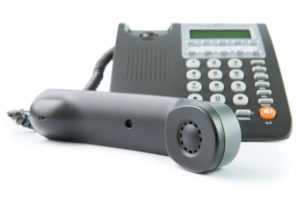 As we discussed in Wednesday’s blog, trying to decide on a business phone system can be challenging considering the vast array of options on the market. One of the biggest factors a business should take into consideration is company size. Your company size will largely determine the right business phone system for your business. In our last blog, we discussed the best business phone options for personal, small, and medium sized businesses. Today, we will examine the most popular choices for large businesses and enterprises.
As we discussed in Wednesday’s blog, trying to decide on a business phone system can be challenging considering the vast array of options on the market. One of the biggest factors a business should take into consideration is company size. Your company size will largely determine the right business phone system for your business. In our last blog, we discussed the best business phone options for personal, small, and medium sized businesses. Today, we will examine the most popular choices for large businesses and enterprises.
Large Business and Enterprise
Popular Options:
- Business VoIP / Unified Communications
- SIP trunking
- On-premise PBX
Large businesses have entirely different needs than that of smaller or medium sized businesses. Large businesses have numerous office locations, unique sales and support operations, and executives with personal assistants. Usually large businesses will need unlimited calling packages, CRM and business software, and multiple local and toll free phone numbers. Most large businesses will also need call center capabilities.
The best option for large businesses are unified communications services. Most frequently these will come from business VoIP providers. Business VoIP has an online interface that permits account administrators to add users and configure features in real-time. They also offer web-based products that incorporate voice, video, and messaging, as well as other collaboration tools like multi-device compatibility and screensharing, to give a complete business communications solution.
Some large businesses prefer even more control over their business phone system. With SIP trunking and on-premise PBXs, companies have more customization options. The drawback is that SIP trunking and on-premise PBXs necessitate on-site servers and hardware. If you elect to go this route, you will need an in-house IT team to maintain and update the system.
Customization isn’t the only advantage; on-premise solutions are often selected for security purposes. National companies, government agencies, and banks all have strict requirements to ensure secure communications. Doctor’s offices also need special HIPAA-compliant business phone systems to encrypt patient data.
Business Telephone Service: Finding the Right Fit
There are a plethora of business phone system options on the market, but recognizing the size of your business can eliminate a lot of options that simply won’t work. With that said, landline phone systems, in general, aren’t a great option for any sized business in the modern world. Besides being outdated and expensive, they have poorer call quality, less features, and are problematic in terms of scaling. Landlines will also typically require a business to sign a lengthy, non-negotiable contract.
Company size is one of the biggest factors when determining the best business phone system for your company, but it isn’t the only factor. A business will also need to consider their budget, as well as a business phone system’s reliability, user experience, and capabilities. Choosing the best business phone system will mean considering all of the above.
If you have any business phone system questions, please contact us. You can also follow us on Facebook.
